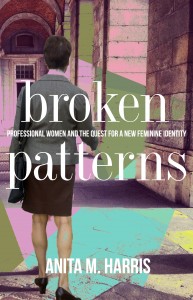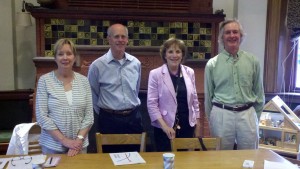Virtual Book Group launches with Broken Patterns as featured summer read
 I’m very pleased to report the launch of Virtual Book Group–which has chosen my book, Broken Patterns, Professional Women and the Quest for a New Feminine Identity as its featured summer read.
I’m very pleased to report the launch of Virtual Book Group–which has chosen my book, Broken Patterns, Professional Women and the Quest for a New Feminine Identity as its featured summer read.
Virtual Book Group is an exciting new venture of digital marketing guru (and chief operating bookworm) Christina Inge. Readers from all over the world can to join for free to share their thoughts about selected books and related topics with one another and with authors, over time.
Inge said: “We created Virtual Book Group for people who love books, and love talking about them–whenever and wherever they are.
“This summer, we’ll be reading Broken Patterns: Professional Women and the Quest for a New Feminine Identity. Based on interviews with women who entered male-dominated careers in the 1970s and 1980s, Boston author and reporter Anita M. Harris looks at the intergenerational patterns of women’s lives. She shows how the experiences of mothers and grandmothers influence career decisions, and traces the impact of rapid technological and social change on family structures, psyches, and gender roles.
“As with all summer books, ours is full of great stories, riveting drama, and lessons learned. But it’s not a potboiler. It’s an eye-opening look at generations of women in the workforce that picks up where Lean In leaves off.”
As the author, I’ll be chiming in for online and video chats through August–and, possibly, beyond.
It’s free to join–but you do need to REGISTER.
If you’d like to buy Broken Patterns, It’s available at the Harvard Bookstore, on Amazon and Kindle...as well as Kobo, Apple, Inktera, Nook, Page Foundry and Scribd. You can find more information, photos, readers’ comments and tell your own story at Brokenpatternsbook.com.
–Anita M. Harris
Anita M. Harris is an author and communications consultant based in Cambridge, MA.
New Cambridge Observer is a publication the Harris Communications Group, an award-winning marketing and PR firm located in kendall Square, Cambridge.


